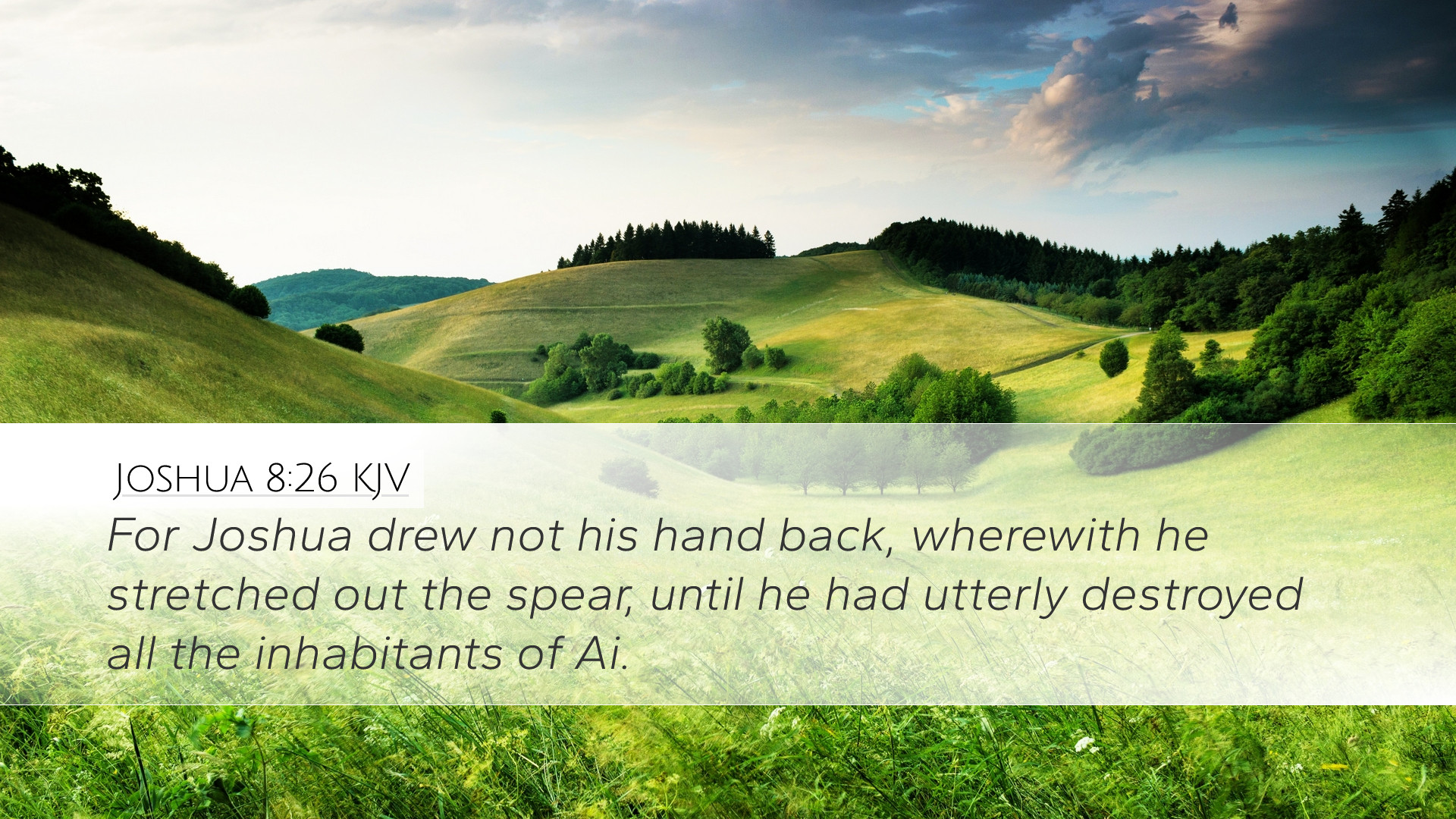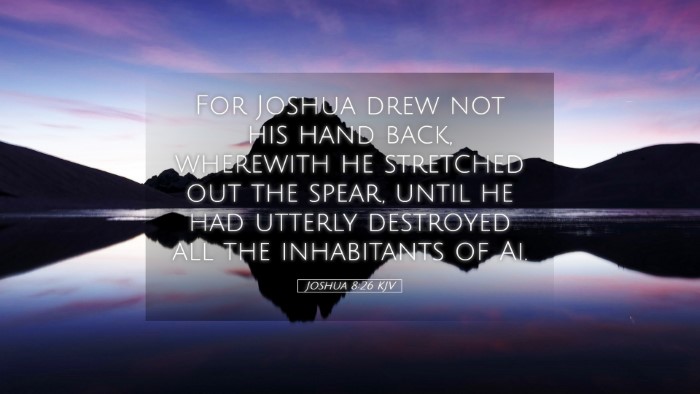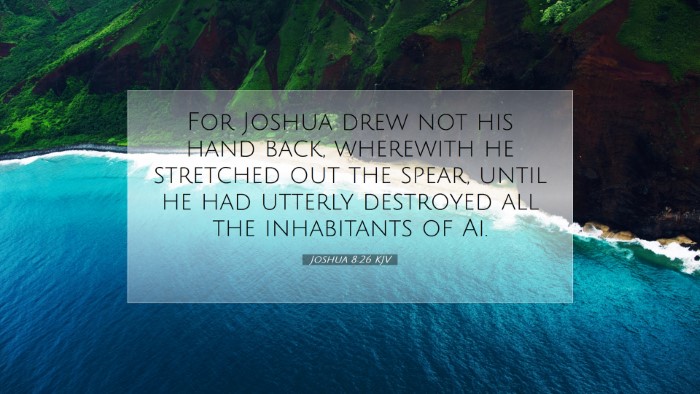Bible Commentary on Joshua 8:26
Verse: "For Joshua drew not his hand back, wherewith he stretched out the spear, until he had utterly destroyed all the inhabitants of Ai."
Introduction
Joshua 8:26 is a pivotal verse in the narrative of the Israelites' conquest of Canaan. This verse captures the determination and resolve of Joshua as he leads the people of Israel in obedience to God’s command. Scholars and commentators emphasize the significance of Joshua’s actions, reflecting on themes of leadership, divine assistance, and the rigorous demands of faithfulness in fulfilling God’s commandments.
Overview
The context of Joshua 8 involves the second attempt to conquer Ai after an initial defeat in chapter 7. Following a strategy devised by God, Joshua successfully ambushes the city, leading to its destruction. This verse particularly highlights Joshua's steadfastness as he holds his spear aloft, symbolizing both a gesture of authority and reliance upon God's power.
Commentary Insights
1. Joshua's Leadership and Obedience
Matthew Henry emphasizes that Joshua commands the respect and obedience of his people through his unwavering commitment to God’s instructions. His action of holding the spear serves as a visible sign of God's strength infused through Joshua’s leadership. He notes that Joshua's persistence signifies that God’s promises come with the expectation of human effort alongside divine assistance.
2. The Symbolism of the Spear
Albert Barnes points out that the spear in Joshua's hand represents divine authority and providence. By not withdrawing his hand, Joshua demonstrates faith in God’s promises, and his victory symbolizes the eventual triumph of Israel over its enemies. This act can be seen as a metaphor for the spiritual conflict believers face today, where steadfastness in prayer and action is paramount for overcoming sin and opposition.
3. The Totality of Judgment
Adam Clarke focuses on the thoroughness of the destruction of Ai. He states that this reflects God's judgment against sin and disobedience. The passage vividly encapsulates the serious consequences of the Canaanite idolatry and rebellion against God. Clarke further notes that this incident serves as a historical reminder of the holiness of God and His intolerance of sin.
Theological Reflections
The verse invites believers to reflect on their commitments to God and the seriousness of His commands. The appropriateness of total dedication to God's will is underscored through Joshua’s actions. The necessity of active faith, as demonstrated by Joshua, becomes a practical guide for Christians, inviting them to reflect on their own "spiritual weapons" in the face of challenges.
Applications for Pastors and Theologians
- Leadership Model: Joshua’s example provides a blueprint for church leaders emphasizing the importance of steadfastness in faith and visible commitment to God’s commands.
- Communicating God’s Justice: Pastoral teachings can draw from the total destruction of Ai to articulate the gravity of sin and God’s justice. This can lead to deeper discussions on grace and redemption.
- Spiritual Warfare: The spear can serve as a metaphor for spiritual authority believers possess through prayer and the Word of God; thus encouraging congregations to engage actively in spiritual battles.
Conclusion
Joshua 8:26 serves as an important lesson on leadership, faithfulness, and the necessity of complete obedience to God. Through the insights of Matthew Henry, Albert Barnes, and Adam Clarke, we gain a deeper understanding of the narrative's implications for contemporary faith and practice. The verse not only recounts a historical event but also invites believers to cultivate a posture of perseverance and trust in God’s leading as they confront their daily journeys of faith.


